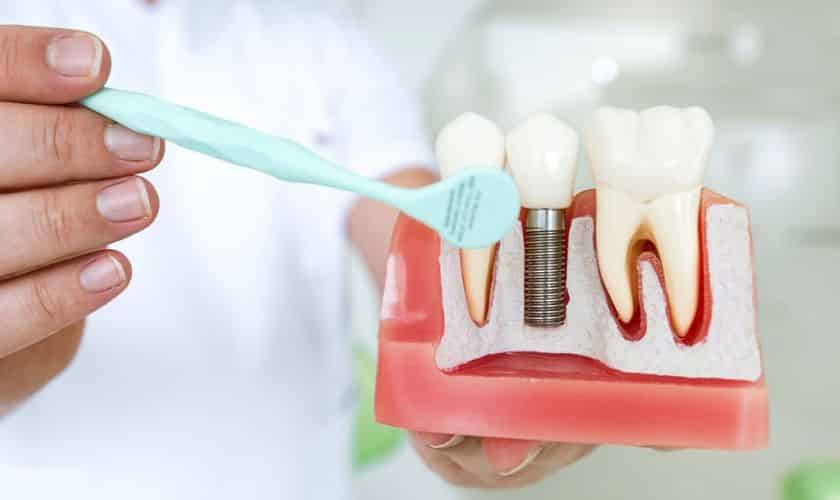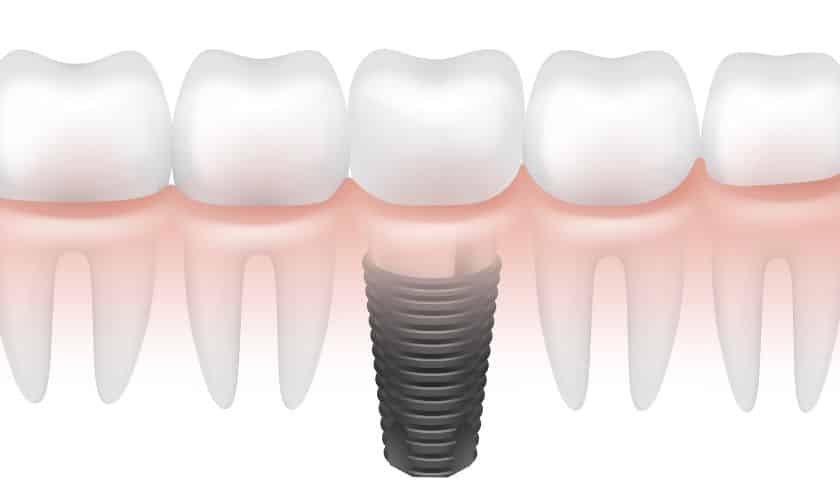Published on July 4, 2023

A perfect smile holds the power to radiate confidence and enhance one’s overall appearance. Dental implants offer a remarkable solution for individuals seeking a permanent and natural-looking tooth replacement option. By embracing dental implants, individuals can unlock the path to a lifetime of restored functionality, improved oral health, and an aesthetically pleasing smile. Unlike traditional dentures or bridges, dental implants provide a sturdy foundation, mimicking the structure of natural teeth. This comprehensive guide explores the many benefits of dental implants, from their durability and reliability to their ability to preserve facial contours and enable unrestricted eating and speaking. Join us on a journey to discover the transformative potential of dental implants and embrace the joy of a perfect smile for life.
Exploring the concept of dental implants
Dental implants are a revolutionary solution in dentistry, offering a permanent and natural-looking way to restore missing teeth. They are designed to mimic the structure and function of natural teeth, providing a strong foundation for replacement teeth that feel and function just like real ones. Dental implants consist of a titanium post surgically placed into the jawbone, acting as an artificial tooth root. This post integrates with the surrounding bone over time, creating a stable and durable crown, bridge, or denture anchor. The concept of dental implants involves the physical restoration of missing teeth and the restoration of confidence, oral health, and overall well-being.

Different Types of Dental Implants
1. Endosteal Implants: These are the most common type of dental implants and are directly placed into the jawbone. They are typically shaped like small screws or cylinders and provide a strong foundation for attaching artificial teeth.
2. Subperiosteal Implants: These implants are placed on top of the jawbone but underneath the gum tissue. They consist of a metal framework that protrudes through the gums to hold the replacement teeth securely.
3. All-on-4 Implants: This technique involves placing four implants strategically in the jawbone to support a full arch of replacement teeth. It is a popular option for individuals who have lost most or all of their teeth.
4. Mini Dental Implants: These are smaller in diameter than traditional implants and are often used in cases with less bone density or space. They are suitable for supporting single teeth or securing dentures.
5. Zygomatic Implants: These implants are used in cases with inadequate bone in the upper jaw. They anchor into the cheekbone (zygomatic bone) to provide a stable foundation for dental restorations.
The Dental Implant process
1. Initial Consultation: The process begins with a thorough examination and consultation with a dental professional to determine if you are a suitable candidate for dental implants.
2. Treatment Planning: A customized treatment plan is created based on your needs and oral health. It may involve dental imaging, impressions, and 3D scans to ensure precise implant placement.
3. Implant Placement: Dental implants are placed into the jawbone in a minor surgical procedure. It involves creating a small incision, preparing the bone, and securely inserting the implants.
4. Osseointegration: Over several months, the implants fuse with the surrounding jawbone through osseointegration. It provides a stable foundation for the replacement teeth.
5. Abutment Placement: Once osseointegration is complete, abutments are attached to the implants. These serve as connectors between the implants and the replacement teeth.
6. Dental Restoration: Finally, custom-made dental restorations such as crowns, bridges, or dentures are attached to the implants. These restorations are designed to match your natural teeth’ color, shape, and size, providing a seamless and functional result.
It’s important to note that the timeline and specific steps may vary depending on individual cases and the number of implants required. Your dental professional will guide you through the entire process and provide personalized care to ensure successful implant placement and restoration.
Advantages of Dental Implants
1. Enhanced Appearance: They provide a natural-looking and seamless solution for missing teeth, improving the appearance of your smile and facial structure.
2. Improved Functionality: Unlike removable dentures, they are securely anchored in the jawbone, allowing for a more comfortable and stable bite. It enables you to eat and speak with confidence.
3. Long-lasting Durability: They are designed to be a long-term solution, offering exceptional durability and reliability. With proper care, they can last a lifetime, eliminating the need for frequent replacements.
4. Preserved Oral Health: They help maintain your jawbone’s integrity by stimulating bone growth and preventing bone loss. It improves oral health and prevents adjacent teeth from shifting or becoming misaligned.
5. Boosted Self-confidence: With a complete and beautiful smile, they can significantly enhance your self-esteem and confidence. You can enjoy social interactions and everyday activities without feeling self-conscious about your teeth.
Maintenance tips after the procedure:
1. Maintain Good Oral Hygiene: Maintaining Oral Hygiene is a must! Brush your teeth twice daily and floss daily to keep your implants and surrounding gums clean. Use a soft-bristled toothbrush and non-abrasive toothpaste.
2. Regular Dental Check-ups: Schedule regular dental check-ups and professional cleanings to monitor the health of your implants and detect any potential issues early on. Your dentist will also provide personalized care instructions.
3. Avoid Tobacco Products: Smoking and tobacco use can negatively impact the success of dental implants. Quitting smoking can significantly improve the longevity and overall health of your implants.
4. Be Mindful of Chewing Forces: While dental implants are durable, they are not indestructible. Avoid biting on hard objects or using your teeth to prevent damage to the implant and restoration.
5. Protect Against Teeth Grinding: Discuss this with your dentist if you have a habit of teeth grinding or clenching. They may recommend a night guard or other protective measures to prevent excessive force on the implants.
FAQs:
1. Are dental implants painful?
Placing them is typically done under local anesthesia so you won’t feel any pain during the procedure. Some discomfort and swelling may occur afterward but can be managed with over-the-counter pain medication.
2. How long does the process take?
The duration of the process can vary depending on individual cases. On average, it takes several months from implant placement to the final restoration. It allows for proper healing and integration of the implant with the jawbone.
3. Are they noticeable?
They are designed to look and feel like natural teeth. The crown or bridge attached to the implant is customized to match the color, shape, and size of your existing teeth, making them virtually indistinguishable.
4. What is the success rate of dental implants?
They have a high success rate, typically around 95% or higher. Proper oral hygiene, regular dental check-ups, and following post-care instructions are essential for ensuring the long-term success of your implants.
5. Can anyone get dental implants?
Most healthy individuals with sufficient jawbone density and good oral health can be suitable candidates for these implants. However, a thorough evaluation by a dental professional is necessary to determine if you are a suitable candidate for the procedure.
Source : Dr. Brett Langston
In conclusion, dental implants offer a life-changing solution for individuals seeking a perfect smile. With their natural aesthetics, durability, and functional benefits, dental implants provide a long-term tooth replacement option. Embracing dental implants means embracing a lifetime of confidence, improved oral health, and the joy of a beautiful, functional smile that lasts for years to come.
